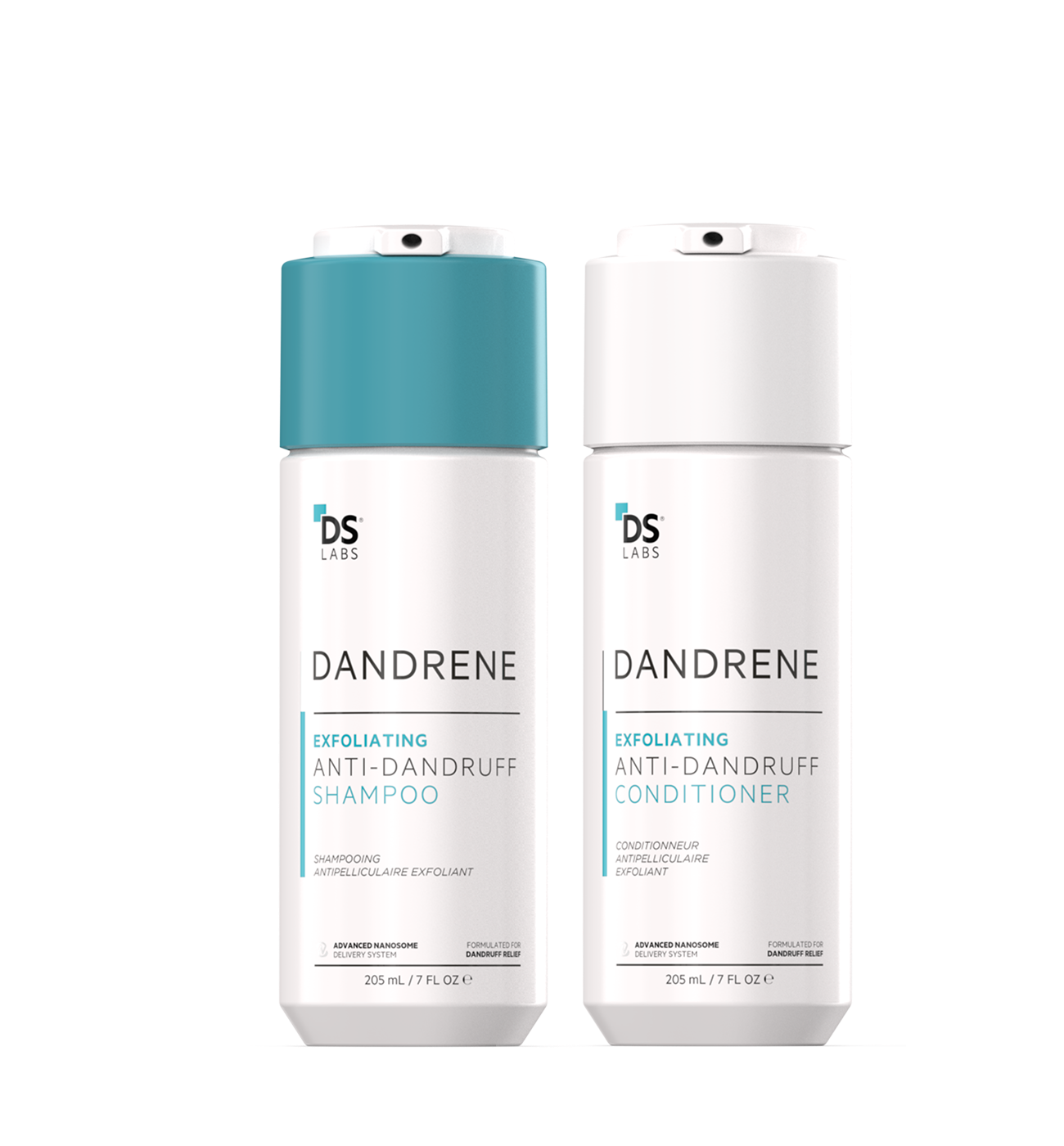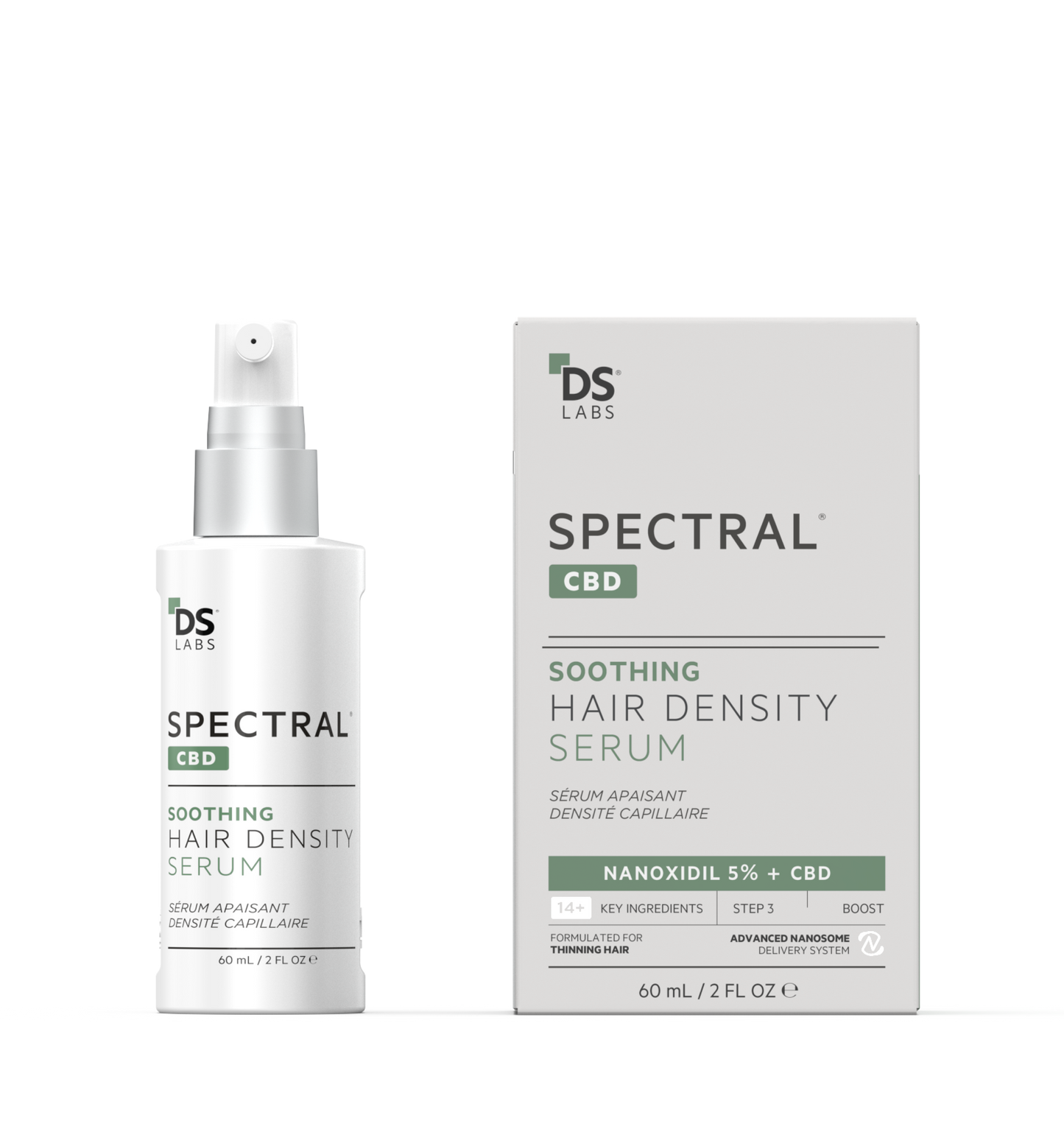Seborrheic dermatitis is a skin disorder that causes inflammation, redness, and scaly, flaky, itchy rashes. It typically appears on the scalp, face, back, and chest. It can also lead to stubborn dandruff.
This article delves into seborrheic dermatitis, its causes, treatment options, and if it can cause hair loss and thinning.
Can Seborrheic Dermatitis Cause Hair Thinning?
Hair loss and thinning are not typical symptoms of seborrheic dermatitis. But the American Hair Loss Association notes that in rare cases, it can temporarily cause these hair problems.
Seborrheic dermatitis occurs when a particular yeast of the Malassezia genus grows on a person’s skin. The sebaceous glands produce sebum, which is a type of oily secretion that the yeast feeds on.
Many factors contribute to an overgrowth of this yeast, a common one being excess sebum production. This then causes inflammation, leading to redness, flaking, itching, and scaly patches.
If a person with seborrheic dermatitis experiences hair thinning, it is often a result of excessive rubbing or scratching of the itchy areas of the scalp. The aggressive motion may cause breakage of the strands and lead to visible patches.
In some cases, the inflammation that occurs due to the overgrowth of the yeast may cause damage to the hair follicles. This may also interrupt the hair growth cycle, which causes temporary hair loss and thinning.
Note that significant hair loss could be due to factors other than seborrheic dermatitis. This disorder can coexist with other scalp conditions, such as androgenic alopecia, which can cause heavy hair fall and thinning.
Causes of Seborrheic Dermatitis
The underlying causes of seborrheic dermatitis are as yet unclear. Researchers are also uncertain about why some people may be more prone to it than others. A few researchers say that it could occur due to changes in the levels of androgenic hormones.
Seborrheic dermatitis also has a potential connection with medical conditions like HIV, Parkinson’s disease, and epilepsy.
Certain factors may also flare up or increase the chances of a person contracting seborrheic dermatitis. These include:
- Too much exposure to the sun or heat
- Cold, dry weather
- Aggressive topical treatments
- Certain oral prescription drugs
- Excessive alcohol consumption
- Rosacea or psoriasis
- Lymphoma
- Anorexia nervosa (or other eating disorders)
- Stroke or heart attack
- Injuries to the brain or spinal cord
- Mood disorders like depression
- Down syndrome
Seborrheic dermatitis is not infectious, so it cannot be passed from one person to another.
Does Seborrheic Dermatitis Cause Permanent Hair Loss and Thinning?
If you experience a little hair fall or thinning because of seborrheic dermatitis, it is usually temporary and reversible. Your hair will grow over time if you take appropriate measures and undergo treatment to reduce inflammation.
Try not to rub or scratch your scalp, as this can lead to breakage.
Treatment for Seborrheic Dermatitis
Infants usually don’t require treatment for seborrheic dermatitis as it gets better on its own. However, this condition seems to be chronic among adults. This means some people may have to deal with it for many years.
Nonetheless, you can opt for treatments to mitigate the symptoms when you experience flare-ups. The best treatment depends on its severity, the location of the worst of the symptoms, and even your age.
Here are the various treatment options for seborrheic dermatitis:
- Natural treatments such as aloe vera, tea tree oil, common myrtle, probiotics, folic acid, vitamin B-6, and vitamin B-12
- Over-the-counter (OTC) treatments for infants, such as anti-dandruff baby shampoos, topical medication, and gentle scalp brushing
- OTC treatments for adults, such as medicated shampoos containing salicylic acid, sulfur, selenium sulfide, pyrithione zinc, coal tar, or azoles
- Prescription medications, such as corticosteroid shampoos, ointments, or creams, antifungal shampoos, creams, or gels, oral antifungal medication, and creams containing calcineurin inhibitors
With so many treatment options available, you’ll have to try a few before finding one that suits your condition. Some people use different treatments at once for quick and effective results.
Note that your doctor will first recommend OTC treatments. If they don’t work, you may have to opt for prescription medication.
Wrapping Up
In severe and rare cases, seborrheic dermatitis may lead to a bit of hair fall or thinning, which is usually reversible. This is likely due to inflammation or aggressive rubbing or scratching of the scalp.
However, excessive hair loss and thinning are more likely to occur due to other underlying causes and scalp conditions. It’s best to consult a dermatologist for appropriate and timely treatment.
Seborrheic dermatitis has many powerful treatment options designed to mitigate its symptoms. Medicated anti-dandruff shampoos and creams available over the counter are promising treatments. Your dermatologist can suggest other options if you’re experiencing severe or chronic symptoms.
Stick to gentle yet effective haircare products from DS Laboratories. You will surely be in trusted hands—they will ensure supe














